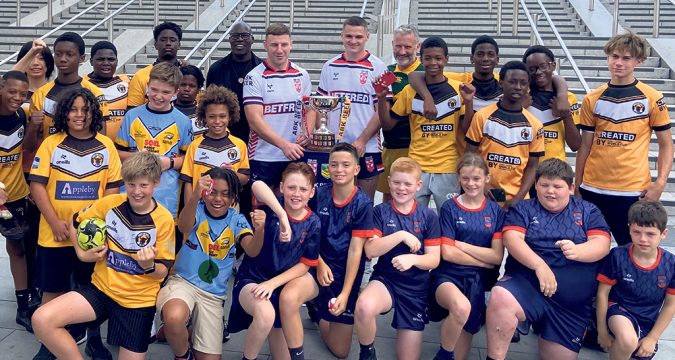 No one would claim it is easy building interest in rugby league in London, but the results are worthwhile and Richard Jones, chair of the London Rugby League Foundation is in it for the long haul.
THERE were more players from London in the last England World Cup squad than there were from Hull or Warrington.
There are more community clubs in Lo
No one would claim it is easy building interest in rugby league in London, but the results are worthwhile and Richard Jones, chair of the London Rugby League Foundation is in it for the long haul.
THERE were more players from London in the last England World Cup squad than there were from Hull or Warrington.
There are more community clubs in Lo London Rugby League Foundation fighting the good fight in the capital
 No one would claim it is easy building interest in rugby league in London, but the results are worthwhile and Richard Jones, chair of the London Rugby League Foundation is in it for the long haul.
THERE were more players from London in the last England World Cup squad than there were from Hull or Warrington.
There are more community clubs in Lo
No one would claim it is easy building interest in rugby league in London, but the results are worthwhile and Richard Jones, chair of the London Rugby League Foundation is in it for the long haul.
THERE were more players from London in the last England World Cup squad than there were from Hull or Warrington.
There are more community clubs in Lo 